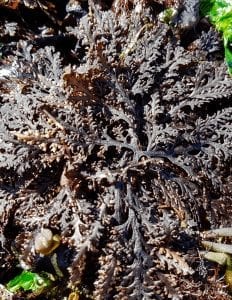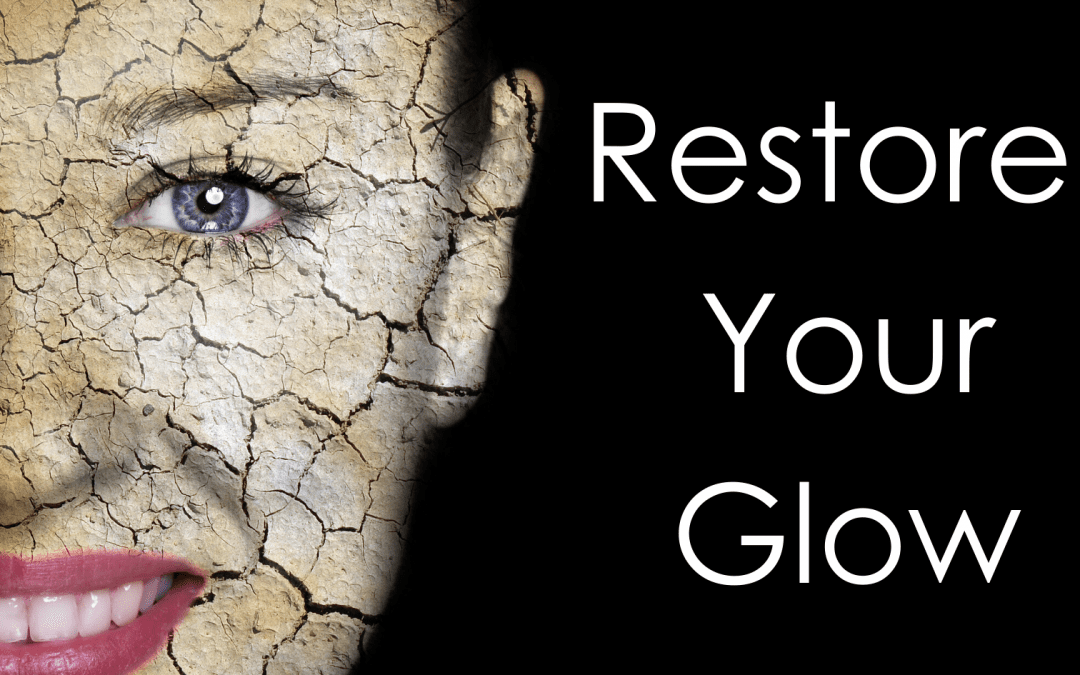 We all have seen gorgeous photos of celebrities in magazines, in film, and photographs that reflect flawless skin with a healthy natural glow. We have many times spent lots of money on products promising to deliver this perfect, airbrushed look, only to be disappointed (again) as we move through the revolving door of beauty treatment trial and error. We purchase serums, wrinkle creams, lotions and potions and even purchase electric power tools hoping to achieve that ceramic look and youthful glow we see in those images. We are buying serums, wrinkle creams, lotions, and potions and even purchase electric power tools hoping to achieve that ceramic look and youthful glow we see in those images.
We all have seen gorgeous photos of celebrities in magazines, in film, and photographs that reflect flawless skin with a healthy natural glow. We have many times spent lots of money on products promising to deliver this perfect, airbrushed look, only to be disappointed (again) as we move through the revolving door of beauty treatment trial and error. We purchase serums, wrinkle creams, lotions and potions and even purchase electric power tools hoping to achieve that ceramic look and youthful glow we see in those images. We are buying serums, wrinkle creams, lotions, and potions and even purchase electric power tools hoping to achieve that ceramic look and youthful glow we see in those images.
The disappointment in the overall result of any corrective product or treatment program stems from not correctly identifying the issue you want to correct. Yes – I am talking about proper skin analysis.
When you precisely identify what skin needs for correction to achieve the desired result, you can more accurately choose the right products and key ingredients necessary to make those changes happen!
Proper nutrition is critical to smooth, healthy glowing skin, and mineral deficiency is a common cause of many rough skin conditions. Several medical conditions are at the root of some skin texture disorders – Thyroid disorders and Lupus (an autoimmune disease), and hormonal changes can impact the skin as well. Minerals and essential fatty acids are vital nutrients needed to support and feed the skin. Most of us need more silicon (NOT silicone) in our diet.
What exactly is Skin Texture?
Skin texture refers to your skin’s surface condition. Good skin texture is soft and smooth, well-hydrated with firm collagen and elastin support… Often skin texture is uneven, coarse, rough, dull, dry, and often sun-damaged. How does your skin feel to the touch? If you run your fingers across your face, your hands, and your arms, are they smooth?
Ideally, the skin should be soft with a smooth, even texture, but it’s not uncommon to have skin that feels coarse and irregular. Sometimes this is due to specific skin problems such as rosacea or acne, but it can also be a product of sun damage, aging, or the result of using the wrong skincare products and poor exfoliation. Dry skin can also cause skin texture to feel rough and uneven, especially during the winter months. Uneven skin texture not only feels unpleasant; it makes skin look dull because it doesn’t reflect light as well. Also, it makes it hard to apply cosmetics smoothly.
What Causes It?
Skin in areas that have not had exposure to sunlight is usually soft and smooth to the touch, an indication that sun damage contributes to uneven skin texture. Sun exposure causes the breakdown of collagen and elastin that gives skin its soft texture and resiliency. Smoking also damages collagen and elastin and contributes to rough, prematurely aged skin. Aging is another common cause of irregular skin texture. With aging, surface skin cells do not shed as rapidly, causing dead skin cells to build up, leading to skin that feels rough and has a dull appearance. Dry skin that lacks moisture also feels less smooth to the touch.
Treatment
There are a variety of treatments that can improve uneven skin texture. Still, the most straightforward and most essential part of ANY daily skincare program (the one that most people overlook or halfway do) is deep and thorough cleansing! Research shows that American women spend an average of 15 seconds, once a day, was cleansing their skin. This all too brief regimen removes surface layers of makeup, at best. Skin cells begin to build up, pores clog, and blotchiness begins to occur. Also, unless you deeply and thoroughly cleanse your skin daily, this cellular build-up prevents active skincare products from penetrating the skin to bring about the desired changes. The truth is, if you cleanse your skin correctly, many skin imbalances clear themselves! Proper cleansing is crucial and is the foundation of all effective treatment programs. Cleanse, purify, and decongest.
Nutritional Factors that Affect Skin Texture
![]() Proper nutrition is critical to smooth, healthy glowing skin, and mineral deficiency is a common cause of many rough skin conditions. Some medical conditions are at the root of some skin texture disorders – Thyroid disorders and Lupus (an autoimmune disease), and hormonal changes can impact the skin as well. Minerals and essential fatty acids are vital nutrients needed to support and feed the skin. Most of us need more silicon (NOT silicone) in our diet.
Proper nutrition is critical to smooth, healthy glowing skin, and mineral deficiency is a common cause of many rough skin conditions. Some medical conditions are at the root of some skin texture disorders – Thyroid disorders and Lupus (an autoimmune disease), and hormonal changes can impact the skin as well. Minerals and essential fatty acids are vital nutrients needed to support and feed the skin. Most of us need more silicon (NOT silicone) in our diet.
Silicon is an element that works with calcium to improve the strength and flexibility of the structural system of the body. Calcium is hard and brittle (like chalk), but when silicon combines with calcium and other minerals for bones, nails, hair, and teeth, it adds flexibility to the strength. Western diets tend to be low in silica. The coarse, fibrous parts of the plant containing the most silicon (husks, stems, peelings, cores, etc.) are usually discarded and not part of our diet.
 Dulse (seaweed) and the herb Horsetail (a vital mineral) are two of the richest sources of organic silicon in the plant kingdom and critical nutrients that target the skin, addressing skin texture specifically.
Dulse (seaweed) and the herb Horsetail (a vital mineral) are two of the richest sources of organic silicon in the plant kingdom and critical nutrients that target the skin, addressing skin texture specifically.
Dulse is a form of seaweed and one of the richest sources of silicon. If you’ve ever examined seaweed washed up on the shore, you probably noticed that it is flexible but tough to tear. This attribute is the dominant characteristic which silicon imparts to plants and animal tissue – strength with flexibility. Dulse is also rich in iodine, which is vital for the proper functioning of the thyroid gland, responsible for healthy hair, skin, and nails and contains many other trace minerals essential for overall good health.
Antioxidants to Improve Skin Texture
If you want to know how to improve skin texture, the simple answer is there is no substitute for a solid skincare routine. Yet, that routine is only part of the equation, because the products you use on your skin are just as important as how often you use them.
For smooth skin and better skin texture, all of your beauty care products should have liberal amounts of antioxidants. Antioxidants are essential because they neutralize free radicals present in our environment, especially in UV radiation. Characterized by their need to “steal,” free radicals are electrons from other atoms, which leads to oxidation. Oxidation damages skin cells over time and destroys the support network of collagen and elastin, which keep the skin firm.
To improve skin texture, when searching for beauty products, look for those that contain antioxidants in the forms of vitamins A, C, and E. Natural skin peels made with pumpkin enzymes is a powerful way to smooth rough skin quickly. Also, oat beta-glucan, ascorbic acid polypeptide, and superoxide dismutase are highly effective antioxidants in corrective skincare formulations.
So, to get the benefits of beautifully textured and glowing skin, identify why your skin is reacting the way it is. Establish a dedicated and appropriate cleansing routine, and choose natural products that contain the key ingredients and nutrients your skin is craving while avoiding harsh chemicals that can do more damage than good.

The Skin Whisperer

Do you have any articles on sudden aging in the face. I’m 40 years old and my face has always been clear and pore-less except for on the nose and chin. Then overnight I woke up with visible pores everywhere and when I smile there are lines that connect the pores and now I look like I’m 10 years older. Please any guidance or help you can point me to will be greatly appreciated. Thanks.
Sincerely,
Sue
I’m am having the very same issues, hence the reason I’m looking this stuff up. Did you get an answer for your question
There are many factors that all contribute to this frustrating skin situation, and this blog contains much of the information you need to understand what can be done to combat the accelerated aging process. I hope this is helpful!!
https://www.sunshinebotanicals.com/?s=aging+
My face is dry and red. I wash and moisturize twice daily.
Good Morning Elizabeth!
I so understand how dry, sensitive skin feels – especially with the season changes coming..That said, I have a wonderful solution for you and have attached a link below with the information you need to turn this around! I hope this is helpful. Let me know if I can assist further. Have a beautiful day!
3 Step Redness Relief, Rosacea and Sensitive Skin Collection